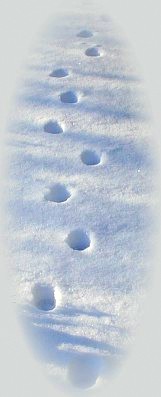Son
of John, rector of Berkhampstead. His mother [Ann] died when he was six. He attended
Westminster School from 1742 to 1749. Cowper was in love with his cousin, Theodora
Jane Cowper, sister of Lady Heskith, and wanted to marry her. Her father, Ashley,
objected on the grounds of the near relationship and William’s inadequate fortune.
Neither William nor Theodora ever married. He was called to the bar as a member
of the Middle Temple in 1754 and offered the clerkship of the journals of the
House of Lords in 1763. Overwhelmed, he became seriously depressed. His cousin,
Martin Madan, tried to give him some spiritual help before he was referred to
Dr. Cotton’s asylum in St. Alban’s in December. While there, he became a Christian
and deliberately stayed on longer than necessary in order to receive spiritual
help from Dr. Cotton. When he left he moved to Huntingdon, where he met the Unwins
and moved in with them. He considered entering the ministry in 1766. After Rev.
Morley Unwin’s death he and Mary Unwin moved to Olney at the invitation of Newton.
Cowper and Newton were inseparable, Cowper becoming in effect “the Curate’s
curate.” Newton recognized Cowper’s literary talents and had his individual poems
published. He wrote the preface to the first edition of his collection, Poems.
Cowper acknowledged, “The honor of your preface prefixed to my poems will be on
my side; for surely to be known as the friend of a much-favored minister of God’s
word is a more illustrious distinction, in reality, than to have the friendship
of any poet in the world to boast of.”
When Cowper showed signs of returning
depression Newton suggested they work together on providing hymns for the weekly
meetings. This gesture of friendship resulted in many hymns grounded in prayer
and scripture which still give much encouragement and incentive to worship today,
two hundred years later, all over the world.
Cowper visited the sick and
took a special interest in the welfare of the lace-makers. He sometimes led at
the church prayer meetings. Samuel Teedon, the village schoolmaster, considered,
“Of all the men I ever heard pray, no one equaled Mr. Cowper.” Newton s testimony
to him in his Incomplete Memoirs was, “He loved the poor. He often visited them
in their cottages, conversed with them in the most condescending [obliging] manner,
sympathized with them, counseled and comforted them in their distresses; and those
who were seriously disposed were often cheered and animated by his prayers!”
Cowper
was fiercely defendant of Newton. His personal copy of An Apology for Protestant
Dissenters shows his spontaneous reaction, in scribbled verse (p.427), to reading
this written criticism of Newton: “In reply to Mr. Newton’s fourth argument (in
which in the usual cant of these Reformers, he pleads, that the Lord...)”.
These
critics who to faith no quarter grant,
But call it mere hypocrisy and cant
To make a just acknowledgment of praise
And thanks to God for governing
our ways,
Approve Confucius more and Zoroaster
Than Christ’s own servant
or that servant’s Master. After Cowper’s death, some unjustified blame
was put on Newton for his depression. William Jay [who knew them both] comments
on this, “Some have thought the divine was hurtful to the poet. How mistaken were
they! He was the very man, of all others, I should have chosen for him. He was
not rigid in his creed. His views of the Gospel were most free and encouraging.
He had the tenderest disposition; and always judiciously regarded his friend’s
depression and despondency as a physical effect, for the removal of which he prayed,
but never reasoned or argued with him concerning it.”
When Cowper and Mary
Unwin moved from Weston, Underwood in their final years to stay with his cousin
Johnson, he wrote these lines in pencil on the window shutter of a bedroom overlooking
the garden of the Lodge, “Farewell, dear scenes, for ever closed to me,
Oh, for what sorrows must I now exchange ye!”
Psalm 30:5
...weeping may endure for a night, but joy cometh in the
morning. |
The shutter was closed
up for twenty years to save paying the window tax. It is now kept at the Cowper
and Newton Museum, Olney. “Oh! with what a surprise of joy,” wrote Newton a few
days after Cowper’s death, “would he find himself immediately before the throne,
and in the presence of his Lord! All his sorrows left below, and earth exchanged
for heaven."
(Excerpted from "The Life Of John Newton By Richard Cecil"
edited by Marylynn Rouse, published by Christian Focus, 2000)
|


